Community, belonging and learning Welsh: A Hungarian’s love for Wales
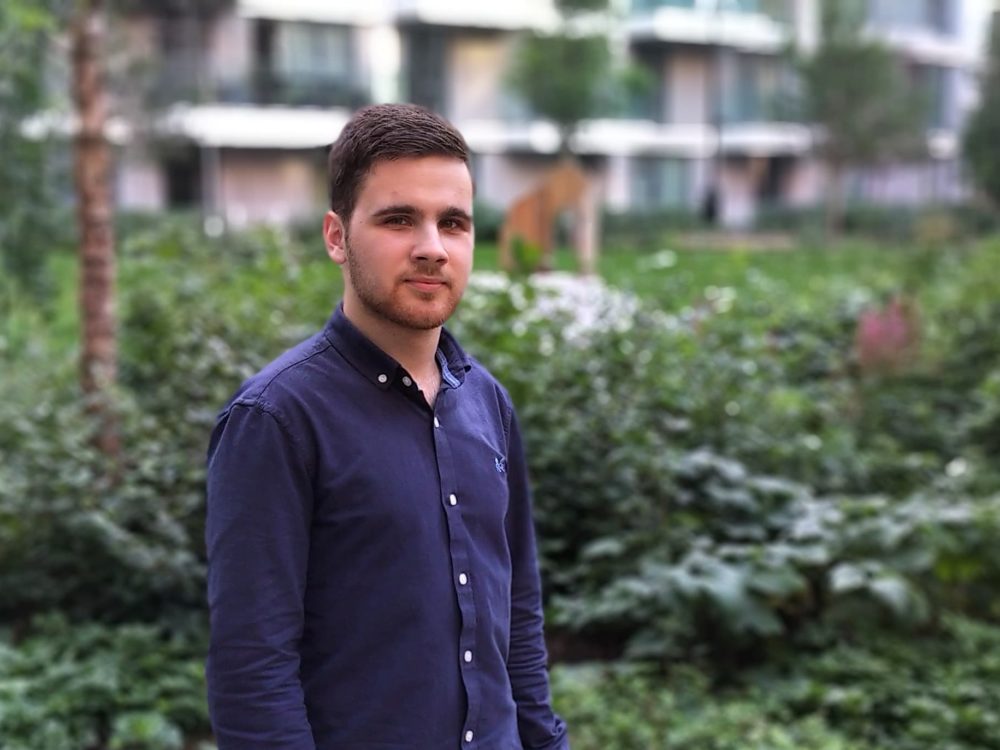
Stephen Price
Balint Brunner is an independent PR consultant and Welsh learner from Hungary now living in beautiful Penmaenmawr.
Balint was born and raised in Budapest, but moved to Cambridgeshire with his family at the age of 12.
As a newcomer to the UK, he knew very little about Wales, but already knew it to be a strong and resilient nation with its own distinct identity.
Why, you ask? Believe it or not, every Hungarian pupil must learn a poem called ‘The Bards of Wales’ in school, which tells the legendary story of 500 Welsh bards who refused to praise King Edward I during his visit to Montgomery.
The poet, János Arany wrote it about his own refusal to accept the Austro-Hungarian emperor but disguised it as a ballad about Welsh resistance to bypass the Austrian censors.
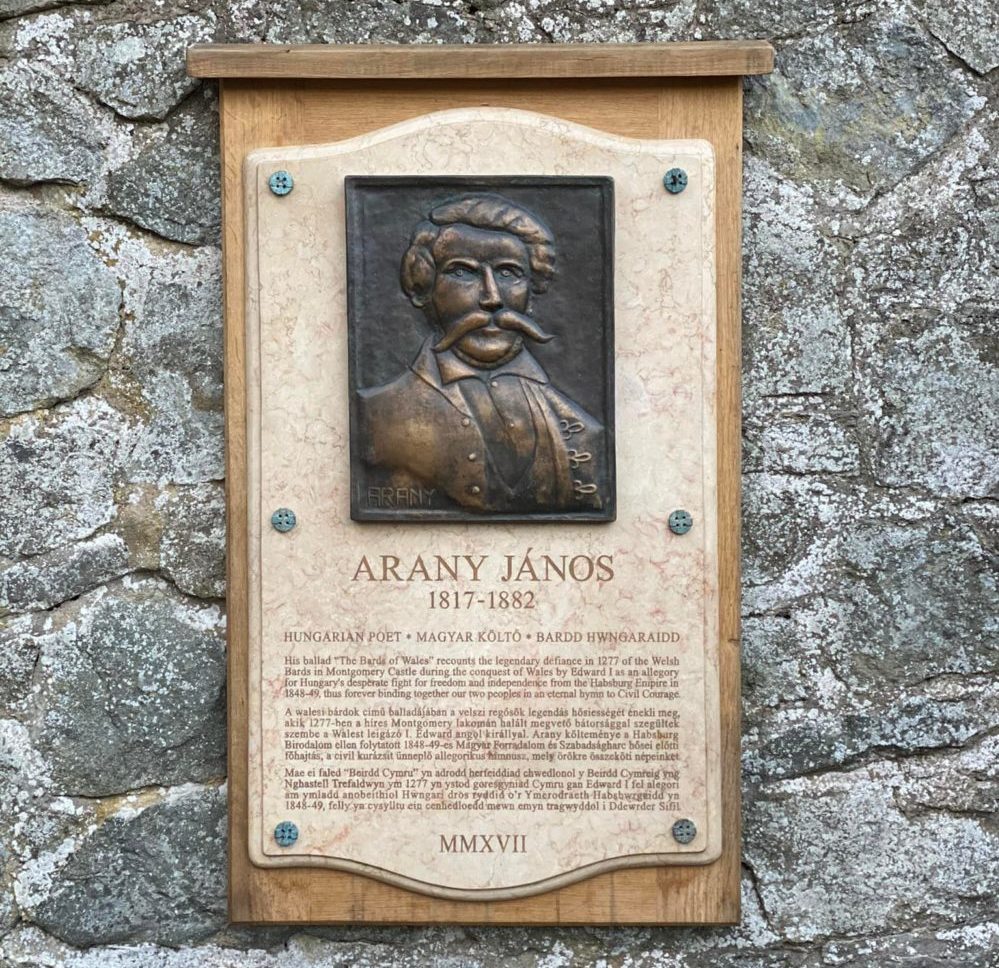
Balint is often asked how a Hungarian growing up in England can become obsessed with everything Welsh. And this is his story (so far)…
Adre/Home
Well, it all started in 2017 when I spent a year working just across the border in Flintshire. It might sound like an unlikely place to develop a fondness for Wales, but the bilingual signs and Welsh flags were just enough to pique my interest.
Most importantly, I felt at home in North Wales. Although I moved to Bournemouth to complete my studies and then to London to start my career, by then I was feeling this inexplicable connection with Wales and its culture… and I soon discovered I wasn’t alone!
I met dozens of fellow Hungarians with a fondness for Wales and the Welsh language. I realised there were Welsh speaking Hungarians living in Gwynedd and Ceredigion, and that Dydd Miwsig Cymru had its own celebration in Budapest.
Equally, I learned that Hungarians have been close to the hearts of many Welsh people for centuries. In fact, Wales welcomed Hungarian refugees with open arms in 1848, 1945, and 1956.
So, I made it my mission to give a voice to this special friendship and founded Magyar Cymru, a not-for-profit initiative that fosters cultural ties between Wales and Hungary.
For five years now, I have been organising cultural events and spreading the word of about Welsh-Hungarian friendship. I’ve been on national TV and radio in both countries and was featured in news outlets including the BBC nearly 400 times.
Passion
It’s all voluntary work, fuelled by my passion for Wales and Hungary, so it’s an amazing feeling to be able to create a ‘buzz’ around Welsh-Hungarian friendship each year.
Since founding Magyar Cymru, I’ve been particularly passionate about raising awareness of the Welsh language in Hungary and encouraging Hungarians in Wales to give Cymraeg a go.
Some of my favourite projects included arranging a full Welsh-language makeover at a popular Budapest café for Dydd Miwsig Cymru, recording a bilingual rendition of Calon Lân with an acclaimed Hungarian folk singer in Budapest, and unveiling a Welsh-language map of Hungary.
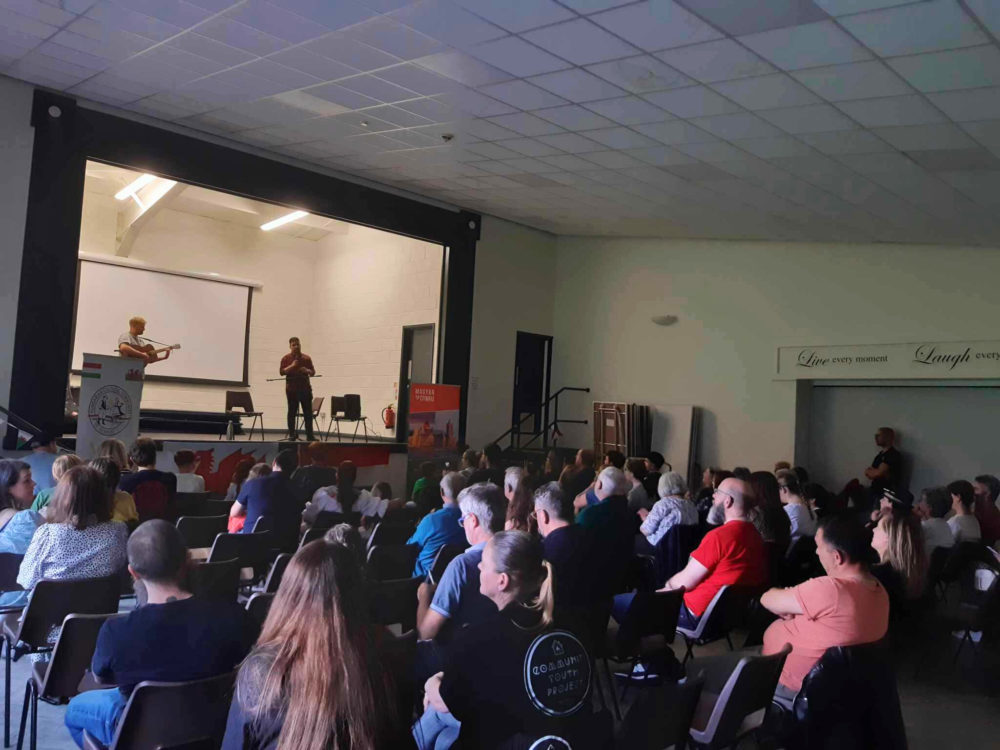
In fact, not long ago I hosted a Welsh-Hungarian Friendship Day celebration with Gwilym Bowen Rhys and a Hungarian folk dance ensemble. Seeing dozens of Hungarians singing along to Welsh folk songs was worth all the effort!
Cerddoriaeth
Music, without a doubt, was one of the catalysts for me learning Welsh.
I clearly remember coming across ‘Curiad y Dydd’ by Bwncath on Spotify and feeling like I’ve entered a whole new world. I spent hours discovering new bands and albums, and within a month I was pretty much only listening to Welsh-language music.
Full disclosure: I did already have a passion for minoritised languages and had already been learning some Catalan.
So, when it came to writing my dissertation at Bournemouth University, I decided to investigate how the government and other authorities could further encourage immigrants in Wales to learn and use Cymraeg.
I interviewed lots of people from around the world who had settled in Welsh-speaking communities and learnt the language.
Needless to say, I envied them and vowed that if I ever moved to Wales, I would follow in their footsteps.
No regrets
So, over the years I did dabble in Welsh a little bit, but it wasn’t until I settled in Wales that I decided it was time to stop simply learning about the language and start actually learning it. This was a decision I’ll never regret!
Not only is Welsh an absolutely beautiful language, I feel it’s a ‘magic key’ that brings you closer to Wales and its people.
Even a little bit of Welsh can change the way you see things around you. I first noticed this while driving across the Welsh countryside.
I’ve been lucky enough to explore a lot of Wales by car, from Conwy to Cardiff, from Aberystwyth to Abergavenny.
While place names like Penymynydd, Abergwyngregyn and Llyn Penrhaeadr may seem rather abstract to some, in my mind they painted a wonderful image of the local countryside and revealed some fascinating stories – it’s all in their names!
Of course, speaking Welsh has many practical advantages, from socialising to endless career opportunities. But to me, Cymraeg is a gateway to a culture I adore.
Goals
I’m tempted to say that ‘fluency’ is my goal, but what even is fluency? I’m confident I won’t be translating Hungarian poetry into Welsh any time soon, but I’d love to get to a level where I’m confident enough to have a conversation in Welsh without the irresistible urge to switch to English after just a few sentences to make my life easier.
I want to get to a level where holding a basic conversation in Welsh feels natural.
Thanks to my work and studies, I’ve lived all around the UK, but somehow I always found myself returning to north Wales.
First, it was a one-year work placement in Flintshire. Then a master’s degree in Bangor.
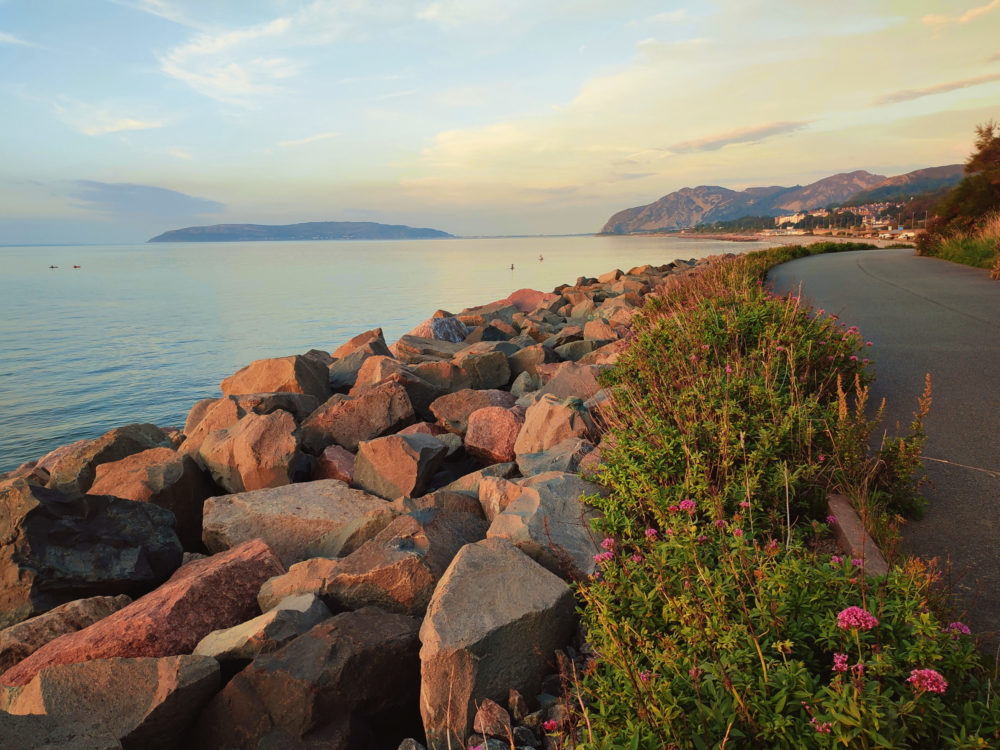
Then eventually settling in Penmaenmawr last year. I simply couldn’t stay away from North Wales… not that I really tried!
Fear
I’ve been dabbling in Welsh for years, but it wasn’t until last year that I decided to start learning it the ‘formal’ way – since then I’ve completed the ‘Mynediad’ course through Learn Welsh in Bangor.
It certainly wasn’t smooth sailing as my existing knowledge of Welsh was quite patchy. Most of my class had studied Welsh in a structured way from day 1, whereas everything I knew was from music, TV, and social media.
Luckily, I had a fantastic tutor who helped me step out of my comfort zone and made me realise that when it comes to learning Welsh, there’s absolutely no reason to be a perfectionist. Even fluent speakers mix in a few English words or get the odd mutation wrong – so why would anyone judge me?
When I moved to the UK, I had no choice but to somehow get myself understood at school.
My English grammar was terrible and I’m pretty sure half the things I tried to explain to my classmates and teachers didn’t make any sense. But within a year or so, I was fluent.
So, here’s a tip from my experience: assume whoever you’re talking to doesn’t know much English and get your point across in Welsh, in whatever way you can.
If you avoid every opportunity to use your Welsh because you fear you might make a mistake, it won’t get any easier.
Out in the wilds
I try to use my (basic) Welsh wherever I can. If I go to a café or pub where I know the staff are Welsh speakers, I’ll almost certainly order in Welsh.
Just last week, a café owner was very intrigued about my unusual accent and asked where I was from… I ended up hitting a personal milestone by holding a basic conversation for several minutes without switching to English.
My organisation Magyar Cymru has also given me some fantastic opportunities to use my Cymraeg
. Earlier this year, I hosted a St David’s Day reception at the Hungarian Embassy in London, where I delivered a speech in Welsh and English – a great confidence booster!
I also work a lot with bilingual organisations in Wales, so I always make an effort to write my emails in Welsh whenever possible… even if it takes three times as long to write them.
My sat nav has been in Welsh for years and I always switch the language on self-checkout machines in supermarkets so that they talk to me in Welsh.
I even did that when living in London – much to the surprise of the supermarket stuff who probably had no idea the machines could do that!
Miwsig (eto)
I strongly remember Bwncath and Bryn Fôn being the first Welsh-language performers I came across online, and I still listen to both of them daily!
I do have quite a few up-and-coming rock bands on my playlists including Yr Eira, Yr Ods, and Fleur de Lys; but I do also enjoy folk music such as Gwilym Bowen Rhys, 9Bach or Meinir Gwilym.
For many years, while living in England, I didn’t have the opportunity to go to gigs and concerts, so I’m now on a mission to make up for this!
Of course, I still discover new singers and bands pretty much every day. I regularly listen to BBC Radio Cymru, Capital Cymru and MônFM, so I often use the Shazam app on my phone to identify and save new songs from the radio.
I’ve watched quite a few S4C series and programmes on demand.
I particularly liked Y Gwyll / Hinterland and Craith / Hidden. I’m not usually a fan of crime dramas, but I’m all the more intrigued if they’re set in Wales and recorded in Welsh.
Needless to say, Canu Gyda Fy Arwr and Stori’r Iaith are among my favourite programmes too!
Belonging
For me, my favourite thing about ‘Welshness’ is that shared sense of community and belonging. This is what makes Wales so unique.
I will never forget that time my fiancée and I (both Hungarian) went to see Yws Gwynedd and Bwncath at the Eisteddfod yr Urdd in Denbigh.
In the break, we found ourselves surrounded by hundreds and hundreds of young people belting out Yma o Hyd at the top of their lungs and with tears in their eyes, and we were singing with them.
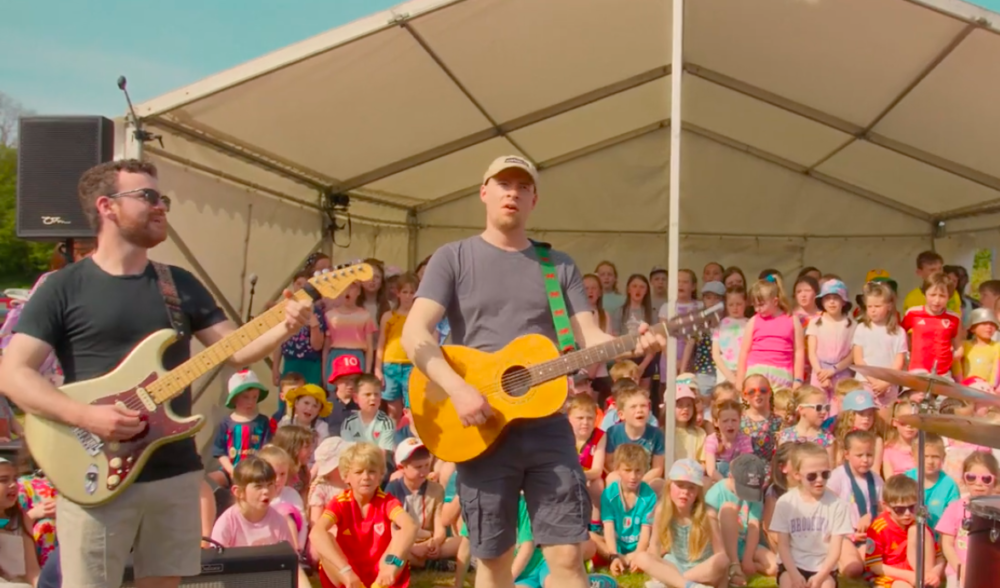
No one knew we didn’t speak Welsh, or that we were from abroad – it didn’t matter. In my 15 years living in the UK, I had never felt so welcome before.
Determination
Ever since I started learning Welsh, I feel like I can identify with the language and what it stands for today.
To me, Cymraeg is more than a means of communicating with others – it’s a source of pride, a sense of community, and a powerful reminder of the will and determination of Welsh people throughout the centuries.
Perhaps this is why it quickly became one of my favourite languages.
Having lived in London and elsewhere in England, I’ve often found myself in defensive mode, having to constantly justify my interest in the Welsh language to people with rather shocking misconceptions about how much the language is spoken or used in Wales.
We’ve all seen British journalists and TV programmes indulging in cheap jibes about Welsh, and the language is often a subject of ridicule among tourists from elsewhere in the UK.
But here’s the thing: people who hold these attitudes wouldn’t usually reveal them to a Welsh person. Well, I’m not Welsh.
When I mention in live in Wales, I tend to get their unfiltered views. They feel at ease when cracking jokes about the “dead language” that they “always speak around you” (a contradiction?) and its “lack of vowels”, assuming I’ll be eager to join in as I’m also an outsider subjected to Cymraeg.
At least in England most people are aware of the existence of the Welsh language, even if they do have misconceptions about it.
But when I travel for work, it doesn’t take more than mentioning the name of my town for confusion to set in. “Penmaenmawr? You live in the UK though, don’t you? It’s in Welsh? What’s your town called in English then?”
Or when I mention I live in a bilingual community, the response is almost always the same: “Why, what’s the other language?”

And those that do know about Cymraeg often assume that anyone learning it must be doing so as a hobby or to honour their heritage.
They are baffled when I tell them that community events around me happen in Welsh and that in Eryri there’s a very good chance I’ll be addressed in Welsh at a café or corner shop.
Neges
I hope that me learning Welsh is sending a positive message to those making judgments about the language from afar.
If migrants start learning it as soon as they move to Wales, it must be a thriving language.
The very notion of me and all my fellow newcomers learning Welsh defies the logic that the language is being kept alive for heritage purposes and isn’t actually in use anymore.
In my view, rather than being merely ALIVE, Welsh is a LIVING language. There is a clear distinction.
‘Alive’ means there are people out there who can speak it. ‘Living’ means children speak it among themselves at the playground, people use it when talking to their pets, and it’s the language of choice when uttering the most heartfelt and meaning words to their loved ones.
No one can tell me that when a kid greets their friend in Welsh, or when an elderly lady talks to her dog in Welsh, or when someone burns their finger on the stove and curses under their breath in Welsh, they are consciously forcing themselves to do it in Welsh in order to “keep their language alive.”
They’re simply living their lives in their native language – it’s no different to me speaking Hungarian with my parents or my partner.
For this reason, we need to normalise people like me learning and speaking Welsh.
I’ve met several native speakers who commended me for my efforts to ‘learn a bit of our language’, while others were blatantly wondering why on earth I’d put myself through the trouble of learning it.
While done with good intentions, this sort of reaction diminishes the language and could discourage newcomers from learning it.
Equally, non-Welsh speakers would often joke that I’m ‘putting them to shame’ with my Welsh skills. It’s just a figure of speech, but it does come across a bit negative.
It makes me feel guilty for learning the language and makes it sound like I look down on Welsh people who don’t speak it. It couldn’t be further from the truth!
Potential
Until we normalise people from around the world speaking Welsh, the same way we no longer bat and eyelid when we hear someone speak broken English with a foreign accent, the language cannot reach its full potential.
The same goes for normalising the use of the Welsh language when showcasing Wales to the rest of the world.
I remember ITV News being praised a few years ago for interviewing a Welshman in his native language and adding subtitles in English.
I also remember footballer Ben Davies responding to S4C’s question in Welsh at a press conference in Qatar. But sadly, these moments are few and far between.

In an attempt to appeal to an international audience, we often end up downplaying our own identity – and this isn’t a Welsh thing at all.
When speaking English, Hungarians have a tendency to Anglicise the names of Budapest’s attractions, from Heroes’ Square (Hősök tere) to Fisherman’s Bastion (Halászbástya). It may sound perfectly normal, yet you’d never hear locals telling you to check out the ‘Triumphal Arch’ (Arc de Triomphe) in Paris or ‘The Holy Family’ basilica (Sagrada Familia) in Barcelona.
So why do we, Hungarians, feel the need to do this?
For the exact same reason, when speaking Hungarian, I tend to refer to Welsh towns and cities using BOTH their names.
“You should visit Caergybi, Holyhead!” After all, who decided we should automatically adopt the English names into every other language in the world?
I feel these subtle changes can help eradicate those inherent biases that may lead people to believe the Welsh language is inferior – or worse – obsolete in Wales.
Further information on Magyar Cymru can be found on their social media: https://www.facebook.com/MagyarCymru and website: https://magyar.cymru/network
Click here to find out more about SaySomethingInWelsh.
Click here for more info on DuoLingo.
Click here for information on local Wales-based Welsh classes or London classes (Not exhaustive so please check social media and search engines for what’s on in your area)
Click here to find out more about Welsh learners’ magazine, Lingo Newydd.
Support our Nation today
For the price of a cup of coffee a month you can help us create an independent, not-for-profit, national news service for the people of Wales, by the people of Wales.






Maybe Balint could help organize for Hungarian lessons to be made available in North Wales. It is reputed to be a difficult language to learn, but the same is often said about Cymraeg, and that is not true.
Am erthygl wych. Wedi codi fy nghalon beth cyntaf yn y bore. Trueni nad oes ysbryd ‘beirdd Cymru’ ynom, a’n bod yn llawer rhy bard i gario cynffon gwladychwyr a gormeswyr ac imerialwyr.